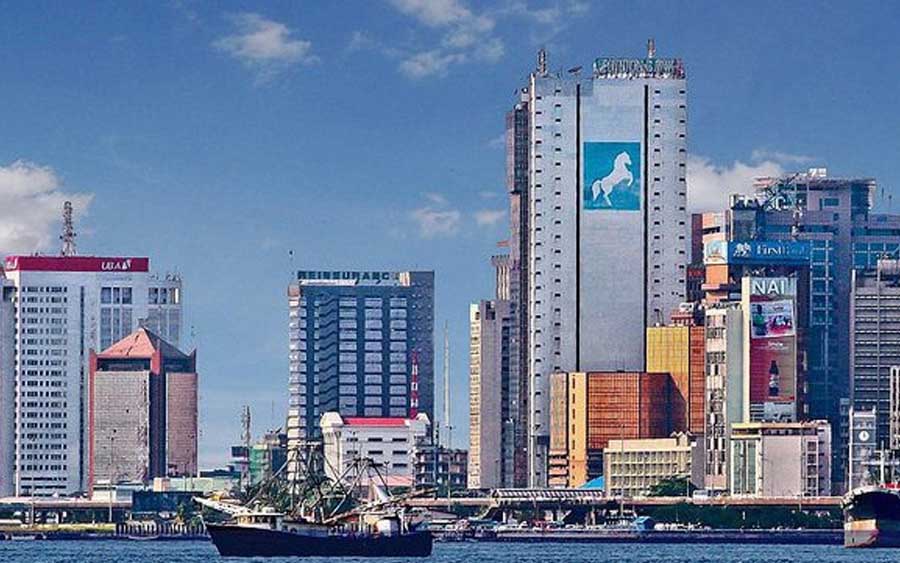Since the release of the 2020 audited financial reports of various Nigerian banks, there have been numerous published works comparing the country’s biggest banks based on varying metrics—customer base, balance sheet size, capitalization, earnings, and chiefly, profitability.
Zenith Bank and GTBank, the behemoths of Nigeria’s banking industry, being consistently the most profitable of the bunch, have had their financials frequently dissected by one too many analysts revealing valuable insights into the dynamics of each bank’s management style and vision, track records, and, of course, a projection of what this year’s profitability race will look like for them, for FUGAZ, and others in the industry.
READ: USSD service disruption: MTN, banks meeting end in a deadlock, continues today
A cursory search on Google with “vs” between the names of both banks will show that various publications have pitched them against each other in the battle for supremacy as Nigeria’s biggest bank in different aspects within and outside of banking. So many articles that an observer could be tempted to think that the Nigerian banking industry was at its peak and the aforementioned banks were the only ones poised to profit from Nigeria’s economy. Such an observer would be wrong on both counts.
On the first count, Nigerian banks are outranked in Africa, with Zenith Bank leading the nation’s most lucrative industry at number 14 behind North and South African banks in terms of capital; and on the second count, there are challenger banks whose market share and profitability can no longer be ignored. These banks are the potential contenders for the coveted status of Nigeria’s biggest bank.
READ: CBN crypto ban and its ramifications for Nigerian banks
Access, Fidelity, et al
This ignored group of potential contenders have continually made progress over the past few years. Access bank, whose vision is to be number one in Africa, has been relentless in this pursuit that has seen it become the youngest member of the FUGAZ while acquiring competitors along the way. Its profitability has more than doubled since its record-breaking N60.1b in 2017, even as it continues to expand its presence in the continent.
Fidelity, Stanbic, and Sterling can hardly be classed with the self-proclaimed warriors of Access Bank in terms of balance sheet and customer base, but their resilience and grit in leading the Tier 2 banks’ charge have accorded them their deserved respect in the industry as they continue to increase their year on year profitability and become an investor’s delight.
READ: Nigerian Banks to stop “instant completion” for forex transfers online
This group of potential contenders are inspired, more than anything, by their need for self-actualization in the industry, and while some don’t look likely to overtake the leading duo to become Nigeria’s biggest bank in the nearest future, their being in the race will always be important in determining who gets the title.
The elephant (and horse) in the room
Conspicuously missing from the previous list of challengers are First Bank, UBA and Union Bank. Although their profitability and capitalization sets them up as favourable challengers, one cannot but consider their pedigree in making the distinction of not grouping them with the rest of the potential contenders for the enviable Nigeria’s biggest bank title.
These banks, which used to be the immovable financial giants until a few decades ago, when the likes of Zenith and GTBank leveraged superior service delivery and aggressive marketing to unseat them, have been able to reinvent themselves and stay relevant in the industry, even producing two of the five FUGAZ. Notwithstanding, they will need something radically new if they are to catch up with, much less overtake, the industry’s leading duo.
The fintech MFBs
They are the smallest group of the chasing pack quite alright, who with each passing day and each round of funding, seem the most likely to unseat the so-called top dogs and other potential contenders. Nigerian fintechs have transcended the Payment Service Provider’s space and, in most cases, become pseudo digital banks through the acquisition of MFB and BDC licenses.
These fintech MFBs have demystified the banking industry with innovative customer offerings that have seen traditional banks consistently try to play catch up. They have leveraged social media expertise to reach a larger network of customers, mostly beyond the scope of their one-state MFB licenses.
They have been able to appeal to millennials and Gen Z by selling convenience and meeting them where they can be found, and where they are most comfortable doing business—online. Their products are also streamlined to their target market and are adopted by communities through online influence as a social standard.
The fintech MFBs’ ability to offer free banking services and higher interest rates for investments is a huge selling point that tips consumer acceptance in their favour and is predicated on their relatively low costs as shown below:
| Fintech MFBs | Traditional Banks | |
| Licensing cost | Minimum paid up capital for MFBs ranges from N20m for a unit, N100m for a state and N2billion for a National license. | Commercial banks are required to maintain a minimum paid-up share capital of Twenty five billion naira (N25,000,000,000.00) or such other amount as may be prescribed by the CBN from time to time. |
| Operational cost | While not having access to their financials, as they are not publicly traded, one would be correct to assume that the cost of running a single physical address would be quite minimal compared to that of commercial banks with over 200 branches nationwide. | Huge operational cost. For instance, Zenith Bank spent N1.8billion on Travels, N20b on IT, N30.9b on AMCON levies, and N148b on other expense lines in 2020 which include advertisements. |
Fintech MFBs are nimble organizations that have shown their ability to adapt and align themselves to the yearnings of Nigeria’s young population. They have become the preferred investment destination on the African continent for venture capitalists.
Their framework for competing on their own terms is being adopted by newly established commercial banks, who no longer see the relevance of establishing so-called “wide branch networks,” but are rather using hubs in different geo-political zones to drive their commercial interests while going digital for retail; exploiting increased smartphone penetration, demographics and regulatory focus on inclusive banking.
The figures look unlikely presently, but it may not be too long before we see history repeat itself in the Nigerian banking industry, and one of the groups produces the next biggest bank in Nigeria. Whichever bank emerges, it is certain that reduced cost of service delivery, as well as a robust IT infrastructure and a strong retail market, will play a key part.
We will keep watching with anticipation as it all unfolds.



















Zenith is #1